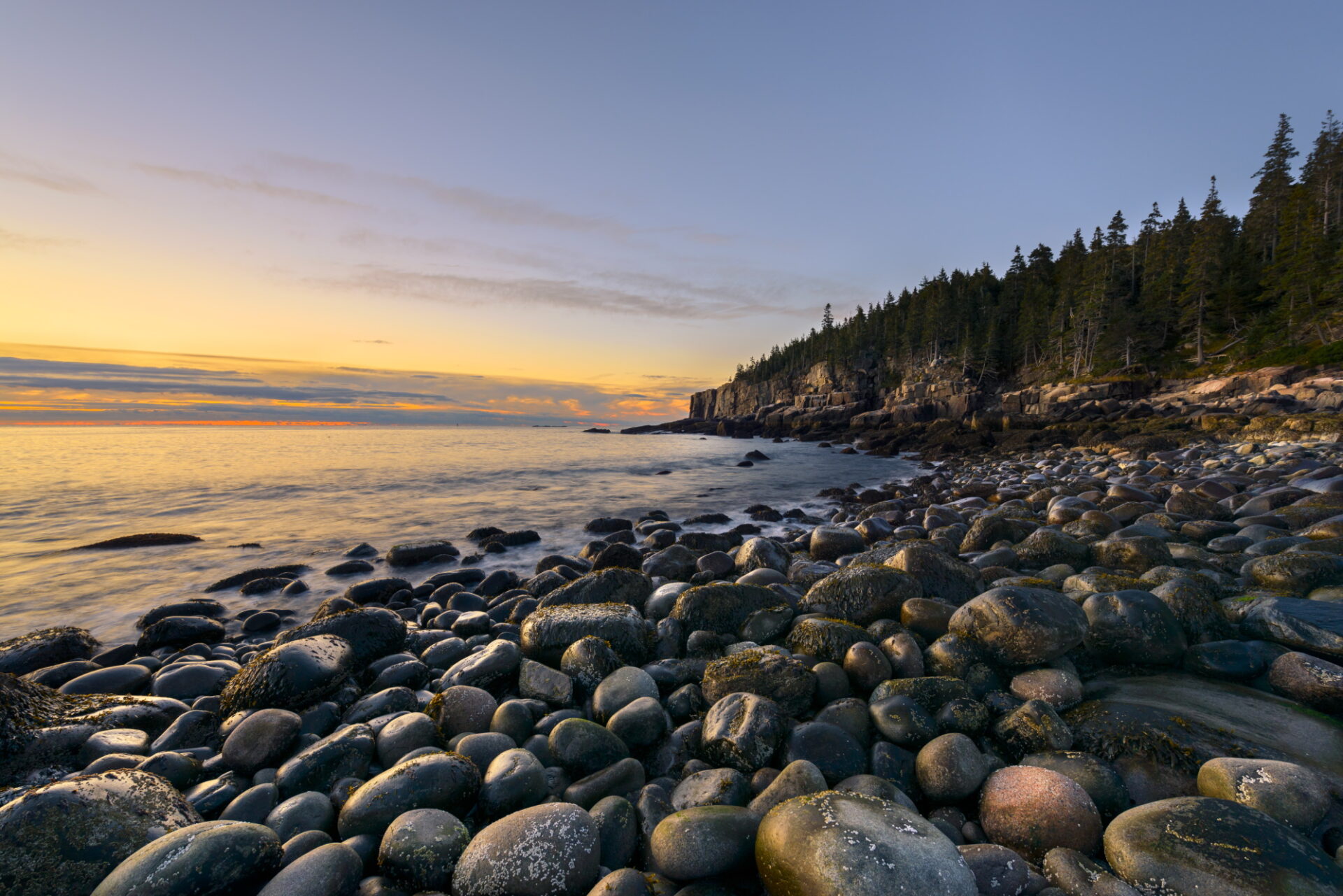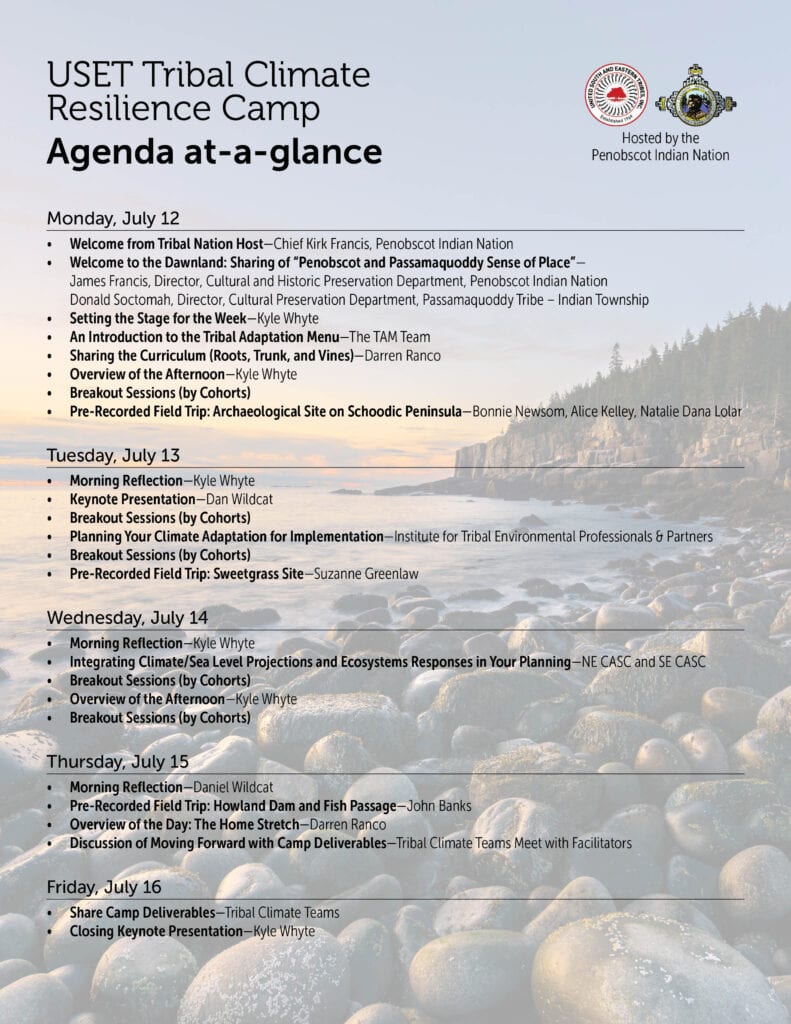Events

- This event has passed.
USET Virtual Tribal Climate Resilience Camp
July 12, 2021 - July 16, 2021

The USET Tribal Climate Resilience Camp will be virtual!
USET is following the Centers for Disease Control and Prevention (CDC), Tribal, federal, and state public health guidelines and updates regarding COVID-19. In order to ensure the safety of Tribal Nation citizens, our staff and partners we will be holding a virtual version of the Tribal Climate Resilience Camp for the dates of July 12-16, 2021.
Tribal Climate Resilience Camp registration and questionnaire now available!
To register for the Tribal Climate Resilience Camp, please take our questionnaire. This will register your team and better allow us to ensure the camp presentation and facilitation sessions meet the climate change concerns and priorities of your Tribal Nation and community. The Tribal Climate Resilience Camp will be divided into two learning cohorts, the budding cohort, and the leafing cohort. Both cohorts will receive instruction on climate change and climate change adaptation planning. The budding cohort will breakout into sessions designed for Tribal Nations in the beginning stages of climate adaptation planning. The leafing cohort will breakout into sessions for Tribal Nations with existing climate adaptation plans, but that are looking for guidance and support to implement plans while continuing to engage Tribal Nation communities and partners.
Tribal Climate Resilience Camp Goal
Why you should participate
- Learn examples of Tribal climate adaptation planning
- Identify resources from climate science centers and Tribal organizations
- Build camaraderie with your Tribal Nation team
- Develop climate adaptation to fit the values and priorities of your Tribal Nation/community
- Create a strategy to engage your Tribal Nation/community in climate adaptation planning

Testimonials from the ATNI 2019 Tribal Climate Camp
FREQUENTLY ASKED QUESTIONS
Q: Who Is The Ideal Candidate To Attend The TCRC?
A: It may not be an individual, but rather a team that makes the ideal candidate. The camp planning committee is looking for teams of three individuals from their respective Tribal Nations. Ideally the various team members would hit all three of the following descriptors:
- Tribal environmental professional: Someone who might be spearheading the efforts in producing a climate adaptation plan, either now or in the future.
- Tribal leader: Could be a Council member, a community leader, or culture/traditional knowledge keeper.
- Next Generation Tribal Environmental Professional: Someone who has just started in natural resources and shows promise in holding a key role with the department in the future.
Q: Who Is The Ideal Candidate To Attend The TCRC?
A: It may not be an individual, but rather a team that makes the ideal candidate. The camp planning committee is looking for teams of three individuals from their respective Tribal Nations. Ideally the various team members would hit all three of the following descriptors:
- Tribal environmental professional: Someone who might be spearheading the efforts in producing a climate adaptation plan, either now or in the future.
- Tribal leader: Could be a Council member, a community leader, or culture/traditional knowledge keeper.
- Next Generation Tribal Environmental Professional: Someone who has just started in natural resources and shows promise in holding a key role with the department in the future.
Q: What Is A Vulnerability Assessment?
A: A vulnerability assessment also works to synthesize and integrate information on a deeper level than a comprehensive climate adaptation plan. Information included will often be expert-derived cultural or traditional ecological knowledge, scientific knowledge, and quantitative analyses all pertaining to a particular natural/cultural resource, business, ecosystem, housing area, or emergency response protocol, and other items. This information is garnered in order to assess the degree to which that particular item or area of interest is susceptible to the impacts of climate change while also identifying what specific areas are most susceptible and/or the reasons why.